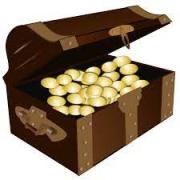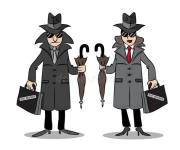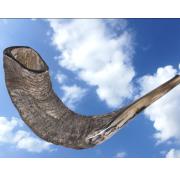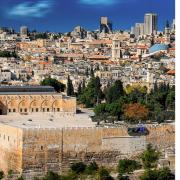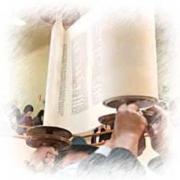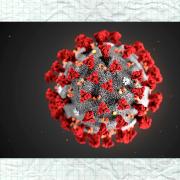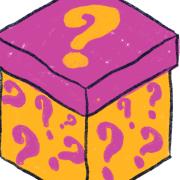The “Well-Meaning” In-Laws
Do you know what I thought was interesting? When Yitro came to the Nation in the desert, then Aharon, the elders, Yitro, and Moshe sat down for a festive meal. They all sat down for a meal, and suddenly Moshe Rabbenu - the Mashiach of the generation, the one who has saved the nation, the one who speaks to G-d, the one after whom 3 million went into the desert - took a tray and started serving people. The Sages said that he had done it out of humility.
Please allow me to share my perspective on these verses. So, with your permission, let's begin.
The Parashat Yitro 18:12 says: "And Yitro, Moses' father-in-law, brought a burnt offering and sacrifices for G-d; and Aaron came with all the elders of Israel to partake of the meal before G-d with Moses' father-in-law." The name of G-d that is being used in the sentence is Elokim. So, here goes the question - why does the Torah use the Name of Judgement? It's just a meal. Why judge anyone at that moment?
The answer is found in the Midrash Mekhilta De Rabbi Ishmael, which states: "This is because Moshe Rabbenu was standing on his feet, serving the people. Moshe was humble enough that he ignored his status completely."
Again, what is about to follow is simply my opinion of how I understand and view the verses.
But woe, that's a heavy one. Do you mean to tell me that Mashiach of the generation suddenly took a tray and started serving the dishes to everyone? Yes, but why? Was it because he saw his father-in-law? And suddenly he forgot that he is the leader of millions who always sits at the front, and that he is the one who should be served? Are we dealing with some kind of past and unresolved trauma?
To understand this, let's go back in time.
In Parashat Shemot, the Midrash tells us that when Moshe killed the Egyptian, and after being reported to authorities by Dathan and Aviram, he fled to the City of Cush. At around age 20, he joined the army and later became a king. Later, at the age of 67, he came to Midian and was sitting by the well. When the shepherds attacked the daughters of Yitro who were shepherding their flocks, Zohar said that "the girls were being attacked primarily because their father had abandoned the local idolatrous practices."
When Moshe came to live with Yitro, Targum Yonatan says: Moshe told him his life story - killing an Egyptian, and being deposed after being a king in the City of Cush. Not sure what to make of it, Yitro has thrown Moshe into a prison with no food and water for the next ten years. He would have starved to death if not for one of the daughters of Yitro, Tzipporah. She had pity on him and secretly fed him every day. That is how he survived those ten years. Imagine their amazement when they opened the prison to find Moshe alive and healthy.
Later, he married Tzipporah and had a son whom he named Gershom, as if to say I have been a foreigner in the strange land, says Parashat Shemot 2:22. It never mentions that strange land. But I strongly believe that the strange land was the city of Midian, where Yitro lived.
In my opinion, since Yitro left his idolatrous practices, the locals were not friendly toward him, his daughters, or Moshe, who was caring for Yitro's flock. And since he was outside most of the time, he had plenty of face-to-face contact with the locals.
But I would also like to add that he was not only a stranger in the land but also a stranger in the family of Yitro.
When we are first introduced to Yitro in Shemot 2:18, it says, "they came to their father Reuel." Reuel means a friend of G-d. But not necessarily friendly to the son-in-law. When one comes to meet the future bride's parents, he finds them very religious and friendly. It is only after the wedding that he sees their true colors. Going forward, the Torah no longer uses the name Reuel; instead, it calls him Yitro.
With six daughters of marriageable age, I assume he had plenty of interesting moments with his brothers-in-law.
On the way to Moshe in the desert with Tzipporah and her two sons, Midrash Tanchuma says: "Said Yitro, I am here with your wife and two kids. If you will not come out to greet me, at least come to greet your wife. If you do not consider her worthy of your consideration, at least come to greet your two sons." (Hmm...)
And here they are in the tent, everyone sitting around the table, and Moshe Rabbenu is serving everyone with dishes. What's wrong with it? The people who were present at the table - the elders, and Aharon, were stunned!!
In my opinion, it looks like Moshe had a tough life in the house of Yitro. He was raised as a prince, served as a king in the City of Cush, but in the house of Yitro, he served dishes.
That is why G-d's name is used in the pasuk as "Name of Judgement"- Elokim. As if Hashem was saying to Moshe: Moshe, how can you do this? At least now DO NOT carry dishes in front of YOUR FATHER-IN-LAW and other people around this table. Through you, I have performed the 10 plaques in Egypt. Through you, I have punished Pharaoh and the Egyptians. Through you, I have parted the sea where the Jewish nation passed through it, and I drowned the Egyptians. Through you, with thunder and lighting I have given you the Torah. Through you, I give over the commandments and My teachings. You, I have raised and made almost as a god in the eyes of Pharaoh and the Egyptians.
And after all I have done for you, you feel it is okay to take a tray and serve people, as you have done in the house of Yitro?
But again, what's wrong with it?
The elders who were sitting at the table, as is customary, talked. And they have done plenty of talking. At the time of the splitting of the sea, and plenty of efforts on Hashem's part, people finally believed in G-d and Moshe Rabbenu. But after this incident, his ratings dropped. He fell in the eyes of the Nation. The problems with Korach, Dathan, Aviram, and plenty of complaints flowed in throughout their forty-year journey.
Yitro, his father-in-law heard and then saw that Moshe had risen to unbelievable heights. And simply by being present at the party, he had altered Moshe’s life path.
Reminds me of another incident in Parashat Vayetzeh 29:31: "וַיַּ֤רְא ה׳ כִּֽי־שְׂנוּאָ֣ה לֵאָ֔ה וַיִּפְתַּ֖ח אֶת־רַחְמָ֑הּ וְרָחֵ֖ל עֲקָרָֽה׃ - Seeing that Leah was unloved, G-d opened her womb; but Rachel was infertile." In all the books, Senuah Leah is translated as "Leah was unloved," but the literal translation is "Leah was hated." Yaakov Avinu did not like that Lavan switched the sisters, and instead of Rachel, whom he loved and for whom he had worked seven years, he got Leah. So he hated her, if I may say so, because Lavan did things his way, the way he wanted, the way he saw things should be done. Yaakov Avinu wanted only one wife, just like his father Yitzchak Avinu had, but he ended up with four, and all because of Lavan, his father-in-law.
No wonder our Sages have made a custom for a groom to break a nice piece of glass on his wedding night.
In the fourteenth century, the author of Kol Bo offered the following explanation: The broken glass represents the wreckage of our past glory, and the destruction of the ancient Temple in Jerusalem in the first century. It recalls, at the most joyous and momentous occasion of the life cycle, that there is a continuing national sadness. It is a memory of Zion that reminds us that, in life, great joy can be cancelled by sudden grief.
But it can also mean the following: The sound of broken glass is a reminder to those around the groom and bride at the wedding. SMASH - to remind them how their ancestors have destroyed the ancient Temple in Jerusalem, and how they, the well-meaning in-laws and all those well-wishers, and not around the newlywed couple, may and definitely could destroy once again the new Temple that is about to be built by this new couple that just got married.
Shout-out to the well-meaning in-laws and all those well-wishers or not - how far have you gone in your efforts?!
The sound of the broken glass - SMASH - means: Stay Out, Don't Get Involved. Mind Your Own Business. And only then does this new couple have a shot at creating their Temple - Bayit Ne'eman B'Yisrael, a Faithful Home in Israel.
Kudos To All The Amazing In-Laws Out There..I Know You Exist!!
Keep On Being AMAZING!!
Shmuel Katanov






